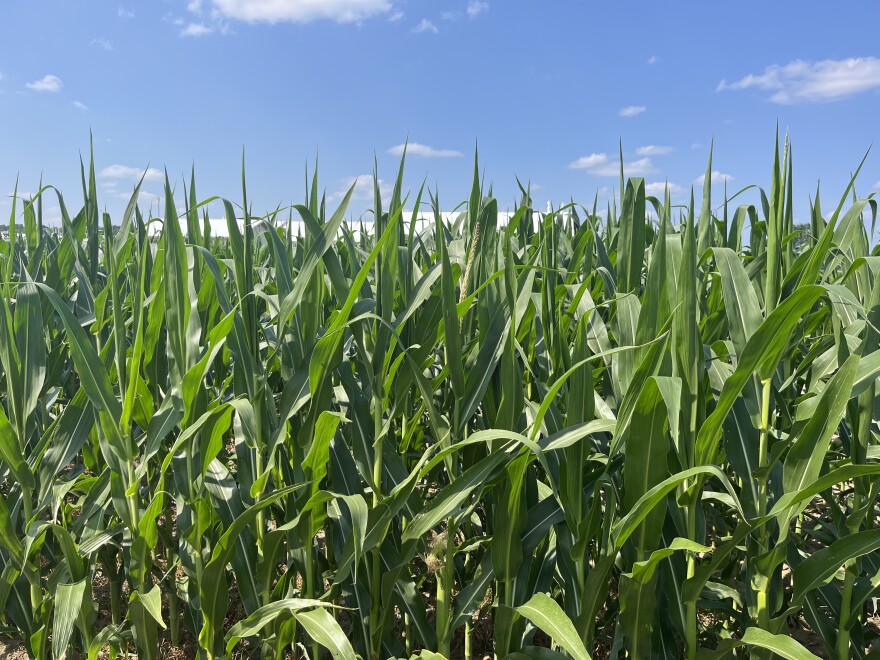The two million acres of corn fields dotting the state aren’t just making food. They’re creating heat. And with sweltering temperatures just around the corner, things are about to get extra hot.
Corn “sweats” to cool off, releasing water vapor into the air. This increases the humidity and makes temperatures feel much warmer, said Michigan State University professor Bruno Basso.
Corn sweat, also called evapotranspiration, can make temperatures feel up to 15 degrees hotter as the vegetables grow in July and August, he said.
“This additional contribution especially in the Midwest from corn evaporating through their leaves makes the entire atmosphere feel more like a steam room,” Basso said.
The phenomenon can also enhance the chances of a summer thunderstorm, he said.
Sweating corn generates what’s called a microclimate, an area that can have drastic differences in temperature and weather conditions from places just a few miles apart. Some other examples of microclimates are the San Francisco Bay in California and the West Michigan coastline.
Fortunately, corn’s impact on heat is not as extreme in Michigan because the state has more agricultural diversity, Basso said.
“We certainly do not have the acreages in corn that Iowa or Illinois or Indiana has. So, this problem is significantly reduced in Michigan,” he said.
The heat index is expected to reach into the upper 90s and lower 100s throughout Michigan later this week.
If you notice yourself having a perspiration problem during the heat wave, you aren’t alone, the corn is sweating too.
This story was brought to you as part of a partnership between WKAR and Michigan State University’s Knight Center for Environmental Journalism.


